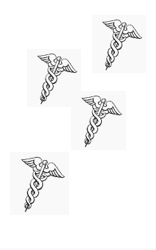By Jean-Luc Neptune, MD
 What Digital Health Innovation Initiatives Did We Pursue at Health 2.0?
What Digital Health Innovation Initiatives Did We Pursue at Health 2.0?
In my last post I talked about the many provider- and innovator-facing issues limiting the adoption of digital health technologies in health delivery enterprise settings (e.g. hospitals, physician offices, etc.). As I alluded to in the piece there are some approaches that are working well and one in particular that I think gives us a chance to really accelerate the pace of innovation. In today’s piece I’ll talk about some of these initiatives.
At the Health 2.0 Developer Challenge program we focused on using prize competitions as the primary tool to help health care providers and other stakeholders innovate and effect change at their organizations. Health 2.0, with the support of the Department of Health and Human Services (HHS), Office of the National Coordinator (ONC) and a broad range of for-profit and non-profit partners, pioneered a number of different prize competition formats including – hackathons, challenges, and pilot programs:
Hackathons
A hackathon (what we also called a “code-a-thon”) is an in-person competition event in which developers, designers, technologists, health providers, researchers and others work together closely over a very short period of time (generally 1 to 2 days) to build technology solutions to health care problems. Hackathons are generally focused on a specific theme and center around the utilization of a specific dataset, API (application programming interface), or other technology.
In terms of the potential to help patients and providers the most impactful hackathon project we managed was the “Code-A-Palooza”, a 2-day event that took place as part of the 4th Annual Health Datapalooza (formerly known as the Health Data Initiative Forum). The Code-A-Palooza challenged participants to utilize newly-released Medicare claims data and other data sources to help providers better understand their patient panels from both a clinical and financial perspective. The event generated a number of interesting ideas and prototype applications that had real applicability in the provider setting and could make their way into the clinic with further development. The Code-A-Palooza was successful for a number of reasons, including:

- Focus – Our partners at HHS and ONC did a great job in defining a relatively narrow focus for the event and specifying a clear aim – i.e. helping providers develop actionable insights from a very important dataset.
- High Value Resource – The Code-A-Palooza gave developers access to a very high value source of information, namely Medicare part A and B claims for 2011, a dataset that had been largely unavailable to the innovator community in the past.
- Support – Finally, teams at HHS and ONC provided a high level of support to event participants, including an excellent “pre-game” orientation session, which allowed the attendees to hit the ground running. In addition, a number of participants in the hackathon were physicians, as was one of the event organizers (the ONC’s Rebecca Mitchell), which greatly helped the participants develop insight into real issues faced by providers.
Overall, hackathons are an interesting innovation tool with a great deal of potential, which is why a number of major technology companies, most notably Facebook, use hackathons on a regular basis to stimulate internal innovation and experiment with new ideas. Hackathons can help innovators access the health system and develop a better understanding of relevant health care issues through collaboration with providers sponsoring or participating in an event.
Continue reading…

















